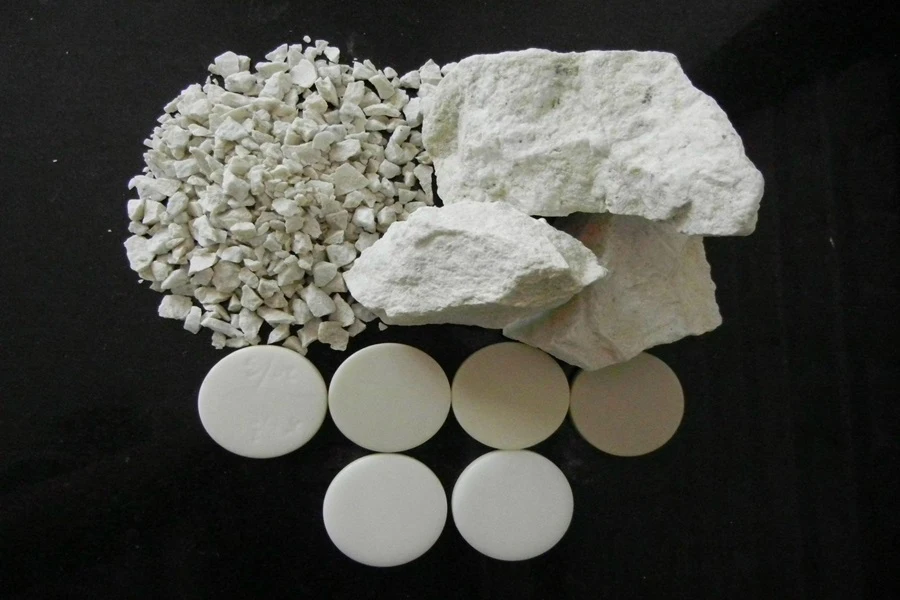Feldspar
We’re here to answer your questions and provide assistance
Characteristics and Properties of Feldspar
Feldspar is a group of aluminosilicate minerals that are rich in potassium, sodium, and calcium. It is one of the most abundant mineral groups in the Earth’s crust, forming a significant component of igneous, metamorphic, and sedimentary rocks. Key properties of feldspar include:
- Chemical Composition: Primarily composed of silica (SiO₂), alumina (Al₂O₃), and alkali metals such as potassium (K), sodium (Na), or calcium (Ca).
- Versatility: Its wide range of compositions makes it suitable for various industrial applications.
- Durability: Feldspar minerals are resistant to weathering and chemical breakdown, enhancing their usefulness in industrial and commercial settings.

Applications of Feldspar
Feldspar’s unique properties make it indispensable in numerous industries:
Ceramics: Feldspar is a key ingredient in the production of ceramic products such as tiles, sanitary ware, and tableware. It acts as a flux, reducing the melting point of quartz and clays and improving the vitrification process for a smoother and stronger final product.
Glass Manufacturing: In the glass industry, feldspar serves as a flux to lower the melting temperature of silica, improving glass clarity, hardness, and strength. It is used in the production of flat glass, container glass, and specialty glasses.
Abrasives: Feldspar’s hardness makes it suitable for use as an abrasive material in polishing and grinding applications.
Paints and Coatings: In the paints and coatings industry, feldspar acts as a functional filler, improving durability, weather resistance, and sheen.
Plastics and Rubber: It is used as a filler in plastics and rubber to enhance mechanical strength and chemical resistance.
Construction Aggregates: Feldspar-containing rocks are crushed and used as aggregates in construction and road-building materials.
Geological and Gemological Importance: Certain varieties of feldspar, such as moonstone and labradorite, are valued as gemstones for their unique optical properties.
Geological Significance of Feldspar
Feldspar plays a crucial role in the formation and classification of rocks:
- Igneous Rocks: Feldspar is a major constituent of intrusive and extrusive igneous rocks, such as granite and basalt.
- Metamorphic Rocks: It is commonly found in metamorphic rocks like gneiss and schist.
- Sedimentary Rocks: Feldspar weathers into clay minerals, which are key components of sedimentary rocks like shale.
Supply and Availability
Feldspar is available in a variety of grades and forms to suit specific industrial requirements:
- Powdered Feldspar: Fine-ground feldspar is commonly used in ceramics, glass, and coatings.
- Crushed Feldspar: Coarser grades are used in construction and landscaping applications.
- Bulk and Packaged Supply: Feldspar can be supplied in bulk or in smaller packages, depending on customer needs.
